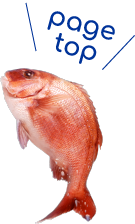ASC certification
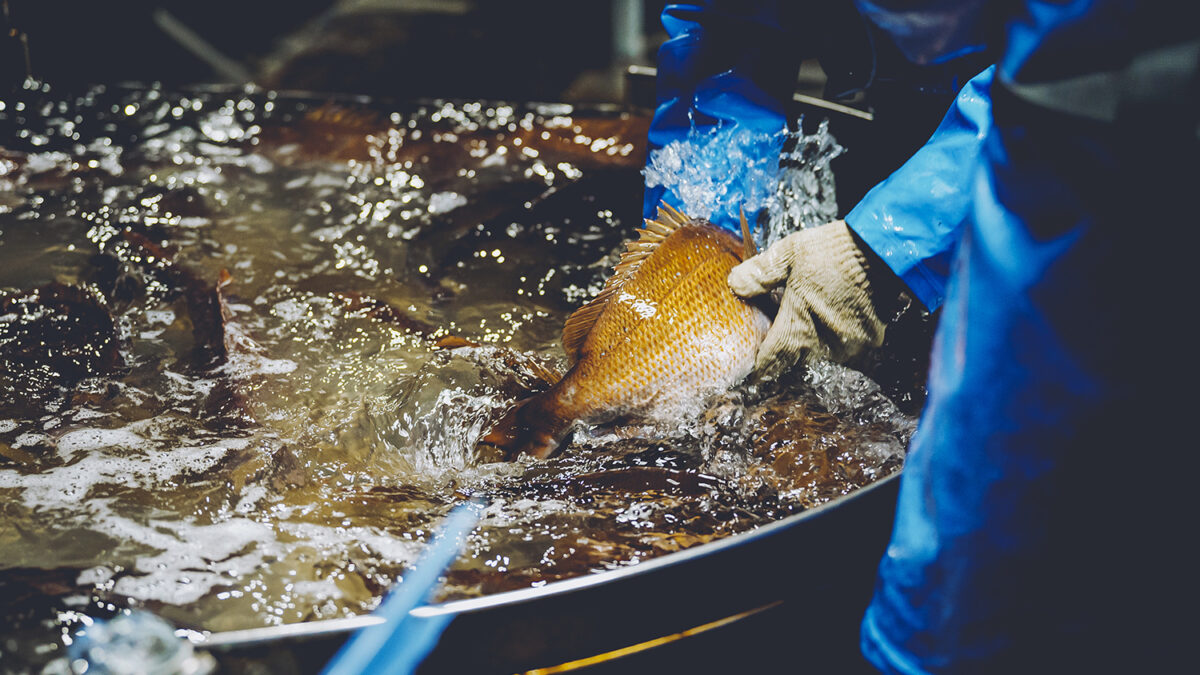
We consume a wide number of fish without considering their future availability. It’s vital that we act globally to safeguard the marine environment and prevent a decline in fish populations. As consumers, we can contribute by selecting sustainable products.
Mr. Tsurukawa addresses the importance of ASC certification, current challenges, and our vision for the future.
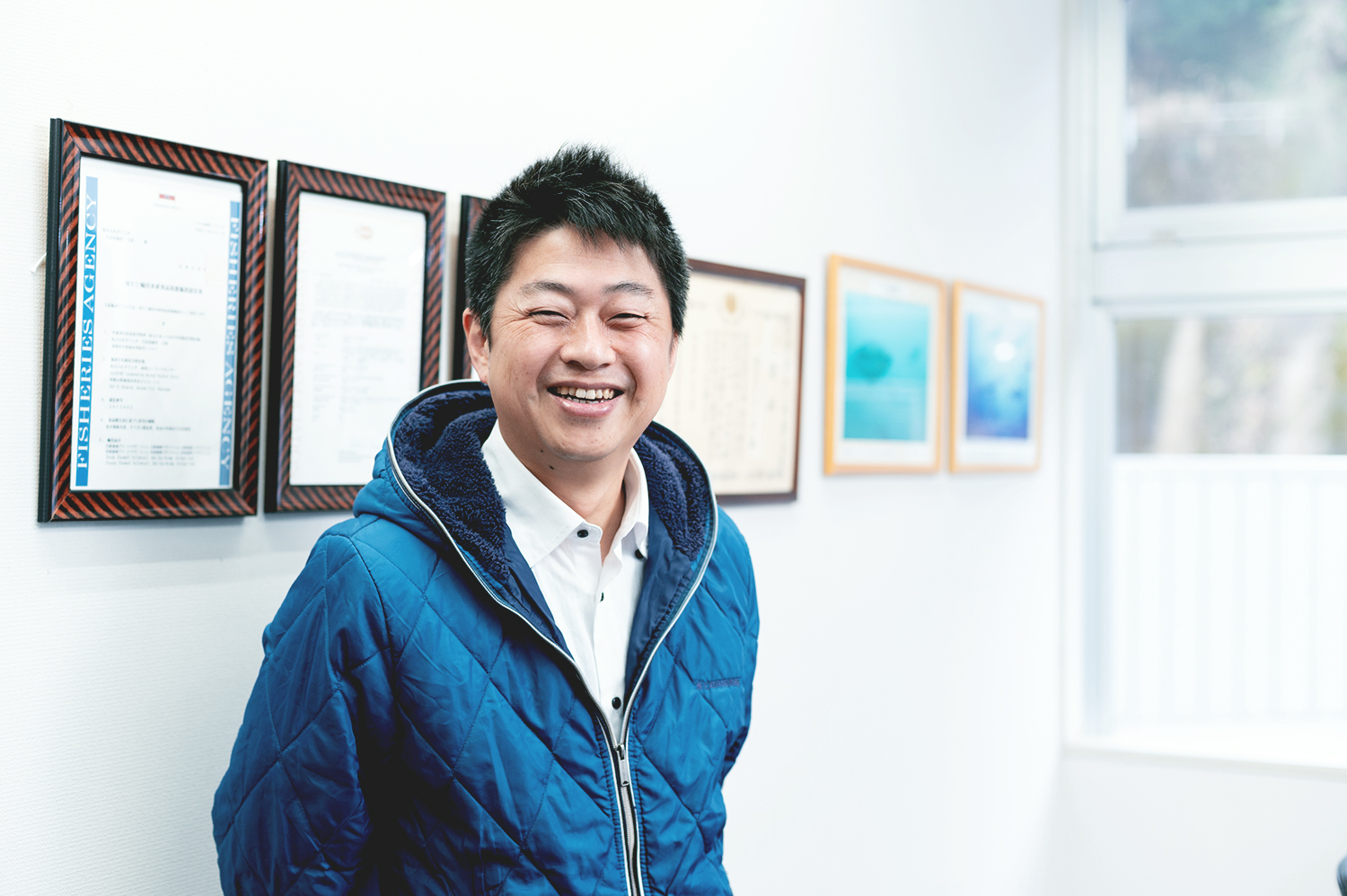
SCARCITY OF FISH IN THE FUTURE?
Given factors such as a declining birthrate, aging population, and the Westernization of diets, it may be hard to imagine the Japanese consumption of fish to increase. However, globally both the consumption of seafood and population growth are increasing.
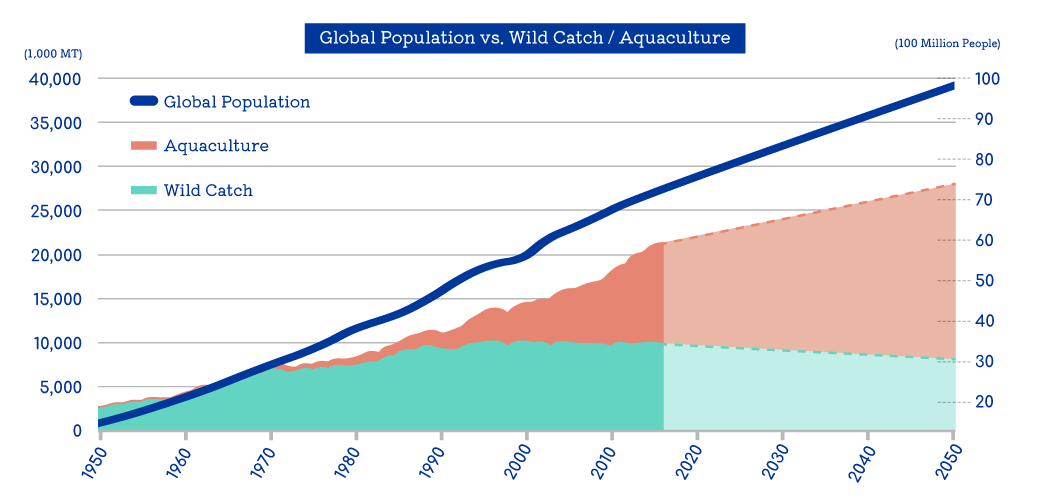
AQUACULTURE RISKS
While we can conveniently purchase and enjoy farmed fish, there are many risks associated with aquaculture. These include environmental pollution, overexploitation of marine resources, and fish disease. To address these concerns, it is crucial to promote sustainable aquaculture practices that prioritize conservation, responsible use of resources, worker welfare, and the well-being of local communities.
- ・Pollution of the water and marine environment
・Overfishing for raw materials (fish meal / oil)
・Diseases and parasites
・Overuse of pharmacueticals
・Escaped farmed fish
・Poor working environment (child labor, slave labor)
Therefore the expansion of aquaculture that promotes conservation of the environment, resources, workers, and the local community is paramount.
WHAT IS ASC?
Established in 2010 with the support of World Wildlife Fund (WWF) and Dutch Trade Association (IDH), the Aquaculture Stewardship Council (ASC) is an internationally recognized certification system for ensuring sustainable aquaculture practices. Through a thorough evaluation of seven key principles the SCA certificate is awarded on a farm-by-farm basis. By attaching the ASC label, we promote and provide sustainable marine products to the market and consumers.
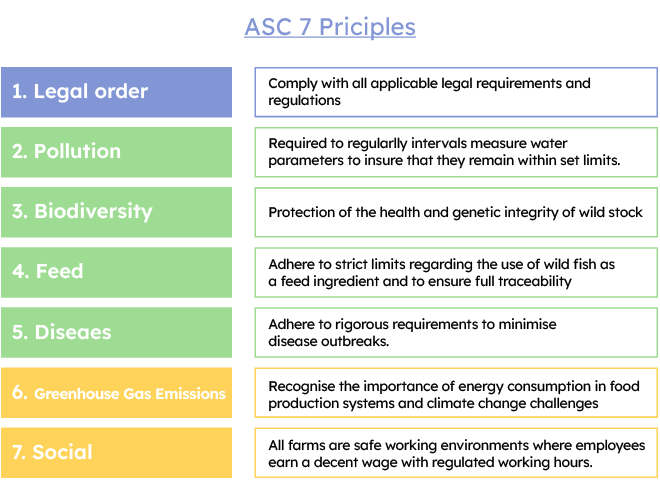
ASC CHALLENGES
Recognizing the growing interest in sustainable aquaculture, we initiated a company-wide project to obtain ASC certification. In June 2020, Dainichi became the world’s first company to obtain ASC certification for farmed Madai (red sea bream).
However, ASC certified Japanese farmers are few and Japan’s public awareness of ASC is still low. Based on a 2019 survey, only 10% of general consumers were aware of ASC. As of March 2022, there were only 14 domestic aquaculture producers with ASC certifications.
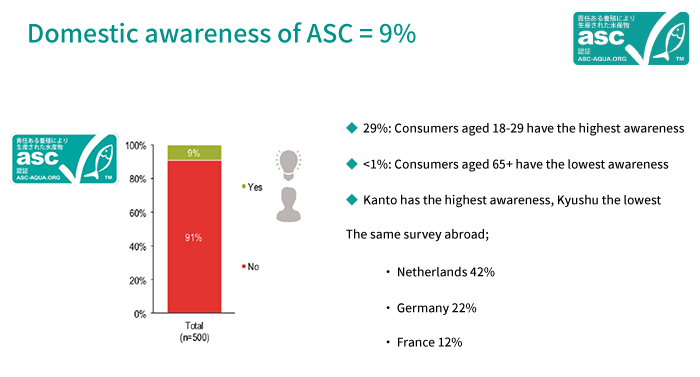
Status of ASC Certified Japanese Farms
Certified: 48 Farm Sites (15 Companies) / Under Review: 1 Farm Site (1 Company)
(as of 2023.06)
| Acquistion Order | Farm Sites | Company Name | Prefecture | Japanese Name | Scientific Name (English Name) |
|---|---|---|---|---|---|
| 1 | 2 | Shizugawa Fishery Coop | Miyagi | Kaki | Crassostrea gigas (Pacific cupped oyster) |
| 2 | 3 | Kurose Suisan (Nissui) | Miyazaki | Hamachi | Seriola quinqueradiata (Japanese amberjack) |
| 3 | 1 | Global Ocean Works | Kagoshima | Hamachi | Seriola quinqueradiata (Japanese amberjack) |
| 4 | 3 | Ishinomaki Fishery Coop | Miyagi | Kaki | Crassostrea gigas (Pacific cupped oyster) |
| 5 | 1 | Maruha Nichiro AQUA | Oita | Hamachi | Seriola quinqueradiata (Japanese amberjack) |
| 6 | 1 | Euglena Co. Ltd | Okinawa | Euglena / Chlorella | Euglena gracilis (Euglena) / Chlorella sorokiniana (Chlorella) |
| 7 | 10 | Azuma Fishery Coop | Kagoshima | Hamachi | Seriola quinqueradiata (Japanese amberjack) |
| 8 | 1 | Maruha Nichiro AQUA | Kagoshima | Kampachi | Seriola dumerili (Greater amberjack) |
| 9 | 1 | Japan Salmon Farm | Aomori | Nijimasu | Oncorhynchus mykiss (Rainbow trout) |
| 10 | 1 | FRD Japan | Chiba | Nijimasu | Oncorhynchus mykiss (Rainbow trout) |
| 11 | 1 | Marukin | Miyagi | Gin Sake | Oncorhynchus kisutch (Coho salmon) |
| 12 | 1 | Dainichi Corporation | Ehime | Madai | Pagrus major (Red seabream) |
| 13 | 2 | Yumigahama Suisan | Tottori/Niigata | Gin Sake | Oncorhynchus kisutch (Coho salmon) |
| 14 | 1 | Kumamoto Fishery Coop | Kumamoto | Madai | Pagrus major (Red seabream) |
| 15 | 19 | Kitakami Fishery Coop | Miyagi | Wakame / Konbu | Undaria pinnatifida (Wakame) / Laminaria japonica (Kelp) |
| (16) | 1 | Shishimaru Suisan | Kumamoto | Madai | Pagrus major (Red seabream) |
* Excerpt from Aquaculture Stewardship Council materials
DAINICHI’S ASC FUTURE
Japan has a long-standing culture of fish consumption, with a strong believe in the value of wild-caught fish. However, ASC-certified fish offer 4 key-points that wild-caught fish cannot provide. These are:
- ・Quality – Assurance of high quality throughout the year.
・Supply – Assurance of availability throughout the year.
・Traceability – The product can be traced back to the producer.
・Sustainability – Assurance of a positive impact on the environment.
To promote ASC certification, it’s important to raise awareness about it’s advantages and encourage a fish-eating culture.





